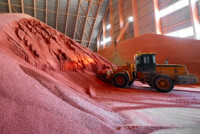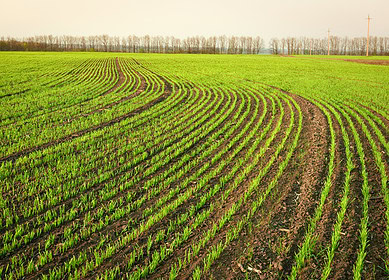New research revealed decline in Earth’s terrestrial water storage that could affect agriculture

The latest research, published in the journal Science, highlights a significant and potentially irreversible decline in Earth’s terrestrial water storage. This decline poses dire consequences for agriculture and could influence global sea levels and Earth’s rotational dynamics. This comprehensive study, led by University of Melbourne hydrology professor Dongryeol Ryu and his colleague Ki-Weon Seo, indicates a dramatic reduction in water stored in soil, lakes, rivers, and snow over the past two decades.
The researchers’ findings suggest an alarming depletion of over 2,000 gigatons of soil moisture globally—double the ice mass loss observed in Greenland from 2002 to 2006. This reduction has been linked to increased frequencies of severe agricultural and ecological droughts, rising sea levels, and even a shift in the Earth’s poles.
This groundbreaking research began under an almost serendipitous set of circumstances when Ryu and Seo, traveling to visit family, stumbled upon an unexpected result in their data analysis, initially dismissed as a model error. However, after rigorous verification using three different data sources, their findings were confirmed, revealing a stark reality that the planet’s landmasses are retaining significantly less water than before.
The study also explores the implications of these changes for agriculture. Increased heat stress on plants necessitates more water, and unsustainable water use in irrigated farming exacerbates the situation. The loss of elasticity in land to recover water levels post-drought could lead to long-term detrimental effects on farming sustainability.
Additionally, the study provides insights into the slight wobble observed in Earth’s rotation, which they attribute to changes in global water storage. This aspect of the research, described by Luis Samaniego of the University of Potsdam as a critical “electrocardiogram for the Earth,” underscores the profound and comprehensive impacts of water storage shifts.
Experts like Katharine Jacobs from the University of Arizona emphasize the long-term nature of these changes, which are fueled by ongoing global warming and unlikely to reverse within our lifetimes. The research serves as a stark reminder and a call to action against the backdrop of continued greenhouse gas emissions and climate change.
Enjoyed this story?
Every Monday, our subscribers get their hands on a digest of the most trending agriculture news. You can join them too!









Discussion0 comments